April and May 2022 Catch-Up

My self-deprecating brain would most likely describe myself as a poor excuse for an adult, pointing to my history of irresponsible purchasing habits as Exhibit A. Nonetheless, by taking on the impossible task of “pile management”, I have successfully learned to stop buying as many games as when I first entered the full-time work force. I no longer purchase a game just because it looked somewhat interesting, because it has been increasingly hyped by the games press and feels “necessary” to play, or because I know I want to play it, even if I cannot play it now.
...well, most of the time. Deeply discounted sale items are still an achilles’ heel of mine.
After being burned by so many of these “prestigious” or “highly regarded” titles and finding myself with too many titles and not enough time, I’ve finally begun to purchase more responsibly and better tackle the “pile”. However, in order to tackle this “pile” I had begun to meticulously track what games I was playing, which I had beaten, and listing out all the unplayed or incomplete titles that I now wanted to “schedule” time for. It was its own form of stress, and only a few months ago did I finally break free of its hold.
In other words, my gaming time has been determined by some self-imposed sense of pressure or duty rather than my wants or mood for far too long. While it has gradually been giving way to more impulsively following desire, such as my now thoroughly developed love of replaying great titles, it is only recently that I’ve thrown any sort of pressure or schedule to the wind for the sake of playing what I want in the moment. Unfortunately for the content mill, this means there are gaps where I may not have something stirring up a desire to write or discuss it (though, to be fair, this was true even when I was intentionally trying to play nothing but games new to me). Or perhaps it is more accurate to say that I have not completed something and therefore felt comfortable discussing. While Elden Ring and Ghostwire: Tokyo were strong enough contenders to fill multiple blog posts regardless of whether they were finished or not, anything else I’ve recently played has failed to make the same impact.
As such, I have decided to put together a sort of “catch-up” entry, with little mini-discussions about what I’ve played the past couple of months. Hopefully I’ll have items of greater substance for you in the near future.
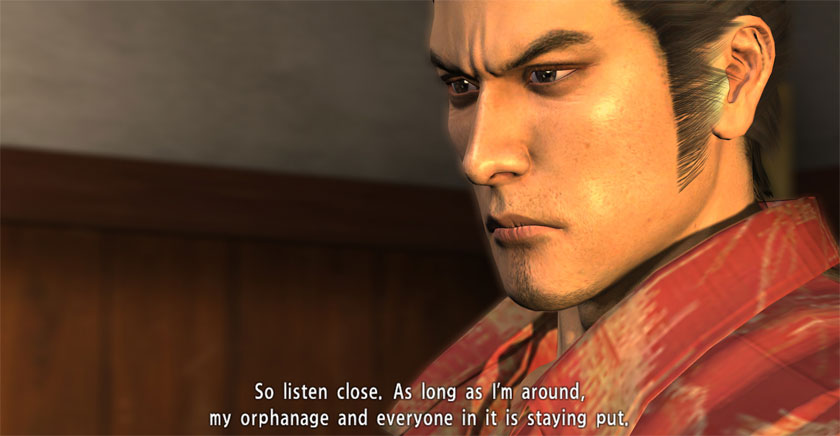
Yakuza 3, 4, and Lost Judgment: The Kaito Files
I’ve admittedly been wanting to write about the Yakuza franchise for a long time, but any draft I come up with just feels incomplete or lacking somehow. I have played over half of the games released in the United States now, and never have I felt as if I wasted my time. If you recall my list of games enjoyed most in 2021, I found Lost Judgment to be my first disappointment in the entire franchise. However, this was primarily due to the game’s narrative as opposed to its mini-games and mechanics, which were largely the best the franchise had to offer.
This rang true for The Kaito Files, the narrative-driven DLC that put the player in control of protagonist Yagami’s sidekick for a smaller, more compact adventure taking place after the events of the main game. It’s a potential farewell to the spin-off series, or an effort to branch off to yet another game series due to licensing disputes with the lead actor’s talent agency. Lacking in any of the franchise’s trademark side-quest antics, The Kaito Files are a focused, eight-to-ten hour adventure through Kaito’s past and potential future.
It is also representative of how far Ryu Ga Gotoku Studio has come in terms of combat design. I had played this DLC in the middle of my time with Yakuza 3, a port of the PlayStation 3 game whose combat was far more frustrating and janky. Most of my success with boss fights relied on cheese and the guzzling of health restoration items rather than mastery of mechanics and observation of enemy attack patterns. In contrast, I barely used healing items in The Kaito Files because the combat had evolved far enough that you could block, dodge, and time your attacks like a proper action game. As much as I enjoyed Yakuza: Like a Dragon and welcome the JRPG approach to the franchise, I desperately hope that the action brawler format will continue in spin-offs now that they’ve properly mastered the design they had been going for.
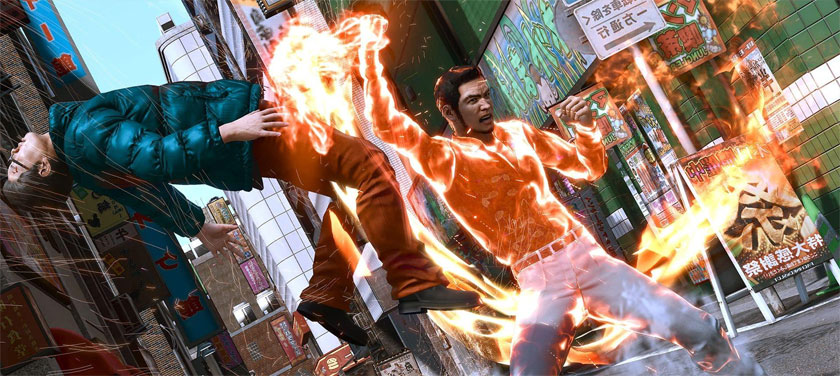
If The Kaito Files puts a satisfying narrative cap on Lost Judgment, then Yakuza 3 is… let’s just say it is most fortunate to simply be a middle chapter in Kazuma Kiryu’s life. The game was at its best when it was acquainting the player with the protagonist’s orphanage and the children in his care. Kiryu is a man that has chosen to leave the Yakuza life behind, though the Yakuza life refuses to let him go. It is no surprise that the game is at its most comfortable and cozy when involving the player in the lives of the orphan children, helping them through their difficulties in school and youthful melodrama, only to become threatened by Kiryu’s violent and antagonist history. The game asks the pertinent question of whether one ever can be free of the clutches of the Yakuza and earn themselves that life of peace.
As much as I enjoyed this aspect of Yakuza 3, however, it really is difficult going from the more polished sequels and remakes to the state of the PlayStation 3 era titles. The combat is far more scuffed and janky and turns boss fights into an irritation rather than an exciting climax to a chapter. The final moments of the game’s narrative are also somewhat disappointing and leave a bad taste in the player’s mouth when all is said and done. Characters make decisions that feel guided more by the writer’s pen than their own internal logic, all so that certain emotional beats might be struck. That the game’s pace was so much quicker than the recent games was, perhaps, to its benefit, as it means too much time was not spent leading to disappointment.
I have since started Yakuza 4, but have done nothing more than complete the first chapter. I hope to resume my journey through the series soon.
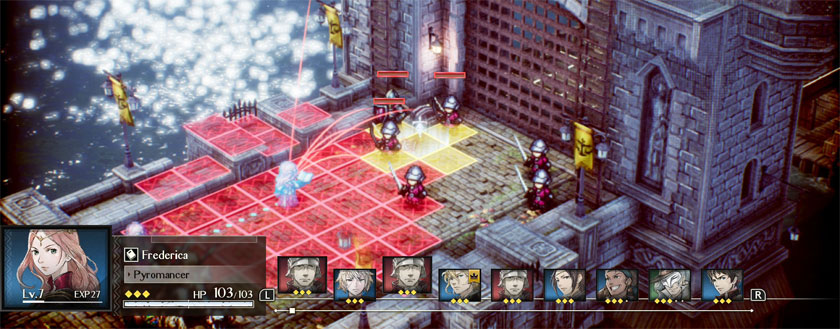
Triangle Strategy
I fully intend to get back to this game imminently, in part so that I can continue progress through so many other Nintendo Switch games I’ve got on “the pile” afterward. It truly is a breath of fresh air in both mechanics and tone, a return to the wonderful era of JRPG’s on the original PlayStation system. It felt like that was the era where the genre was truly coming into its own, legendary titles emerging not just from Square, but multiple different companies to stand shoulder-to-shoulder with the likes of Final Fantasy and Dragon Quest.
Obviously Triangle Strategy is a throwback to the works of Yasumi Matsuno and the tactical RPG’s of Tactics Ogre and Final Fantasy Tactics, though perhaps not as brutal in its execution. Allies do not permanently die on the battlefield, and one’s ranks are able to easily be over-stuffed with potential companions. Nonetheless, skirmishes are difficult and violent, filled with risk-taking maneuvers in the hope of capitalizing on terrain and probabilities. It could very well be my favorite Japanese role-playing game I’ve played in a long time.
Unfortunately, though the circumstances are many, I stopped playing. One of the reasons was due to making a choice I was no longer certain I wanted to live with. I actually perceive this as a strong point to the game’s writing and design, that you could force yourself into a decision you might later come to regret. However, I am a coward and have multiple save files as back up, so I will likely go back and make a different choice when I resume my campaign.
If you have been yearning for a role-playing game with old-fashioned turn-based mechanics and a narrative with less of an “Otaku” leaning, then Triangle Strategy is by far an easy recommendation. I look forward to playing more of it and providing more thorough feedback in the future.
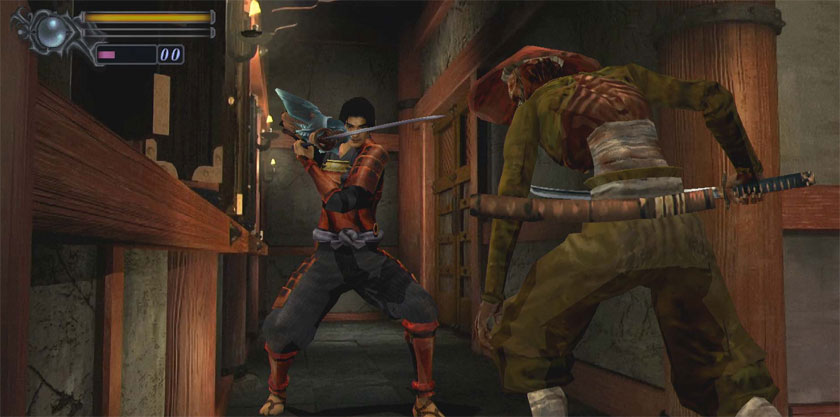
Onimusha
If I had played a game like Onimusha when it was new on the PlayStation 2, would I perhaps have had a more positive perception of the system as its competing consoles released? The decision to leave Sony’s console home with my brother while I went to College was an easy one, as at that point my time was primarily spent on the Xbox and GameCube. Though Onimusha is a short title, would its Metroid-style collection of upgrades and items have introduced a new favorite?
I was able to complete Capcom’s action-horror title across two streams, my total playtime less than four hours. Nonetheless, I felt tempted to jump right back in and try for some improved game time or more complete item collection. It’s a game designed for replayability and mastery, an old-fashioned approach to value. Unfortunately, it was during this era of the early 2000’s that more and more games were shorter in length, and therefore games press and audiences alike were beginning to gripe.
How would I have felt at the time? I’m not sure. After all, it would have been $50 for a new, “next-gen” game, and it would have been completed in less than four hours. It also would have been my first experience with tank controls, so I might have easily rejected the mechanics and abandoned the title altogether. Something similar had happened with Armored Core 2, the first title I had owned on the PlayStation 2 system. It was far more difficult than I expected and I could not wrap my head around all the more simulationist aspects to customizing your mech, so I simply set the controller down one day and never went back to the game again. It is possible I could have been just as stubborn with Onimusha after finding its controls unusual and the combat counter-intuitive to a brain accustomed to RPG’s and side-scrolling action.
Either way, like Castlevania: Symphony of the Night, I had missed out on something I easily could have loved during my foundational years. I only hope Capcom will continue to port the rest of the series, or perhaps even revive it with a new entry.
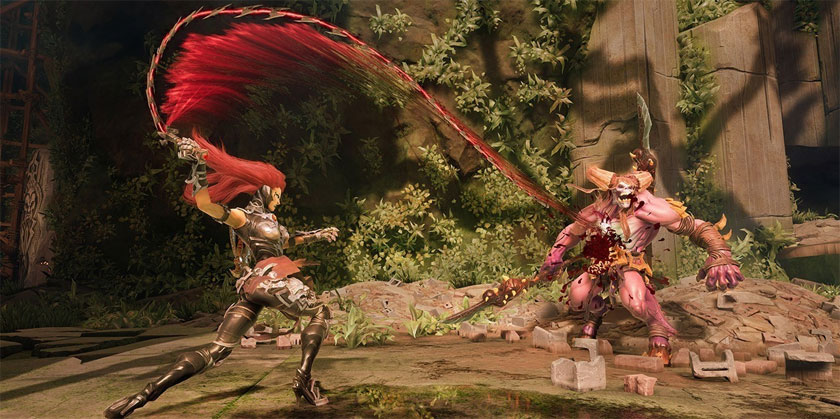
Elden Ring and Darksiders 3
It may sound strange, but I might be more afraid of my gaming skills deteriorating with old age than I am my physical body. Granted, my body is already deteriorating and therefore I’m already pretty used to it. I am still capable of taking on challenging games with less effort than some of my peers, however, and that means more to me than having to use a seat cushion specifically designed to prevent lower back pain. I am not great at video games, but I do believe myself to be above average, and as such there is an odd sort of “gamer pride” whose fragility has come into light during the late stages of Elden Ring. I have finally made my way to Malenia, whom you are likely familiar with as the Blade of Miquella due to all of the memes circulating social media and YouTube, and I have kind of just… stopped playing. I do not know if Elden Ring’s sense of challenge has become indulgent or not, but it no longer feels balanced in the way Bloodborne had. I was starting to sprint past more battles than I was partaking, and the joy to frustration ratio was becoming ever more unfavorable.
For this reason I decided to swap over to Darksiders 3 on my Xbox Series X. It is, perhaps, my favorite non-From attempt at a Souls-like that I’ve played so far, and one that I thought I had already beaten on its Apocalyptic difficulty. Imagine how disheartened I was swiftly becoming as I found myself struggling with the first two hours of gameplay on a fresh new save file. Has it begun? Nearing my thirty-seventh birthday, have my gaming skills finally started to deteriorate? Would I one day fail to enjoy my favorite genres? Would I, too, be cursed to gripe about the lack of easy modes like so many before me?
It turned out I had just been confused, as my previous save file had elevated its difficulty for the New Game + “Armageddon” mode. I had completed Darksiders 3 on its “middle” difficulty, aptly named “Challenging”, perhaps the best balanced for fans of character action and Souls-like combat combined. Nonetheless, I decided to go back and try out that New Game +. Expect me to (try and) write about it in the coming week, for it has allowed for an interesting return trip through a game I already enjoyed.
At the time of this writing I’ve also returned to Elden Ring, abandoning Malenia and instead tackling the Fire Giant. I’ll be endeavoring to sprint through towards the final gauntlet of bosses, all so I can feel comfortable watching those credits roll before starting anew and experiencing a far more enjoyable adventure in Limgrave once more.
It’s just as likely I’ll begin a new save in Bloodborne, though.
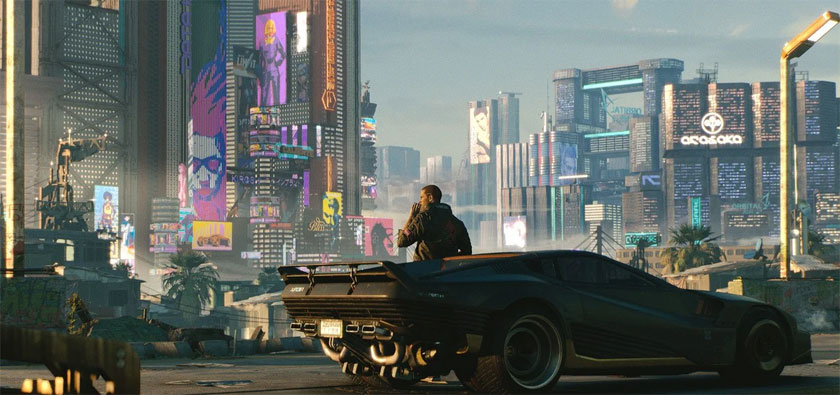
What’s Next?
I did not write about it, but I’ve also been dabbling in a New Game + of Scarlet Nexus. I have agreed to do a podcast episode on it with the chap that invited me on to discuss an anime, so that should be happening inside of a month or two. At some point we also anticipate a discussion on Code Vein, so, clearly there’s a bit of a long-term view going on.
In the short term, however, I’ll finally be starting Cyberpunk 2077, that much discussed CD Projekt Red title with a disastrous launch. With expectations thoroughly tempered, I’m curious to see how I feel about it, especially after looking back at The Witcher 3 as a game I enjoyed but also did not love. I will attempt to play this side by side with Scarlet Nexus and Triangle Strategy. On the stream I’ve been playing Metal Gear Rising: Revengeance, and expect to also have a write-up regarding my thoughts on that game as well. I also hope to post my thoughts on Summer Games Fest as it happens, so the month of June should ideally be quite full of content.
At the very least, the blog should hopefully not be as silent as it was this past May. Be sure to bookmark the home page, subscribe to the RSS feed, or follow me on Twitter for more updates.


